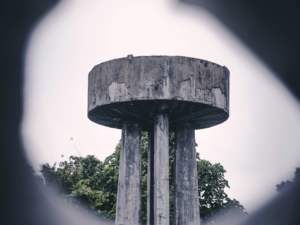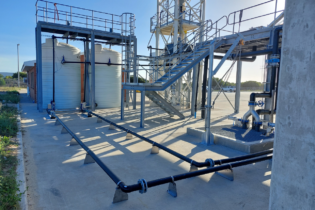As Cape Town prepares for a major water re-use and recycling conference in March 2025, the City demonstrates to the world that it is ready to assume leadership in this critical and rapidly-evolving sector.
Cape Town’s approach to Day Zero water supply in early 2018 created shock waves around the world. It was at the time widely recognised that this might be the first time globally that a vast, modern metro region was in serious danger of running out of its most critical resource: Water for drinking, food preparation, sanitation, healthcare, recreation, industry, and agriculture.
In response to the crisis, the City of Cape Town developed a water strategy based on the understanding that water security would have to become everybody’s responsibility and that everybody’s relationship with water would have to change going forward.
The strategy encompasses five commitments that inform safe access to water and sanitation for all:
- The management of water use
- Building additional resources
- Shared benefits
- Managed risks
- And finally a slow transition towards a water-sensitive city.
As the example of Cape Town shows, and as water crises hit other major cities, it’s becoming clear that existing means of water storage and delivery will not be enough to provide for a rapidly urbanising population in an increasingly uncertain climate.
“Depending on surface water resources and water from further and further away is not the solution,” says Jay Bhagwan of the International Water Association (IWA). “The example of many other cities in the world that have transitioned to re-use offers us hope that the path of water re-use and reclamation is now going to be part of our future.”
One such city is Singapore, where the Changi Water Reclamation Plant has the capacity to treat up to 900 million litres of wastewater daily – roughly equivalent to the water held by 350 Olympic swimming pools. “It’s time for Africa to step up,” says Baghwan. “And the shining example, and the benchmark for what is possible, is Windhoek.”
In the early 1960s, Windhoek became the first city in the world to produce purified drinking water directly from sewage water. Currently, its New Goreangab Wastewater Reclamation Plant (NGWRP) produces up to 25 000 kilolitres of drinking water every day – up to 35% of the city’s consumption.
Now, Cape Town is set to assume global leadership in the sector. At about 60% of the cost of both desalination and groundwater from the Cape Flats aquifer, water re-use is an affordable supplement to both, and has less environmental impact than desalination and other surface water options. The City of Cape Town is pursuing water reuse as an important part of the diversified mix of new water sources for a more secure water future, and a demonstration plant has consistently been producing water of a very high quality.
A permanent reuse scheme, the Faure New Water Scheme, is being planned and designed – one of the largest such facilities globally. “Under the Cape Town Water Strategy, we’ve looked at increasing our supply by about 300 megalitres per day by 2030, of which water reuse features quite significantly,” says Michael Killick, Cape Town’s director for Bulk Services, Water and Sanitation.
“The Faure New scheme will provide about 70 megalitres per day in its initial phase, and this will increase to 100 megalitres per day ultimately.”
It’s appropriate, then, that the 14 IWA International Conference on Water Reclamation and Re-use is being held in Cape Town. The event, scheduled for March 2025, brings the world’s leading experts together with private sector and government to share the latest science, technology and best practice in the areas of water re-use and recycling.
The IWA is an open platform for innovators and adopters of new technologies and approaches to bounce ideas and approaches off each other. IWA programmes develop research and projects focused on solutions for water and wastewater management, placing water on the global political agenda to influence regulation and policy making.
“In a changing climate and a rapidly urbanizing world, we know that the challenges facing water provision to cities are vast,” says Jay Bhagwan. “But we also know that we can tackle these challenges by working together – with people and organisations in our townships and suburbs, and with the wider international water re-use community.”
For more information, visit https://iwareuse2025.com/







